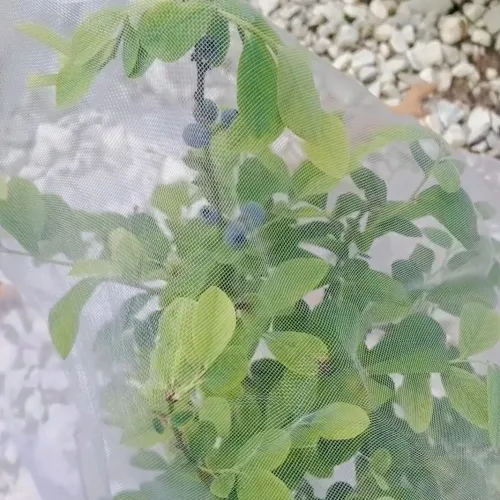-
 Afrikaans
Afrikaans -
 Albanian
Albanian -
 Amharic
Amharic -
 Arabic
Arabic -
 Armenian
Armenian -
 Azerbaijani
Azerbaijani -
 Basque
Basque -
 Belarusian
Belarusian -
 Bengali
Bengali -
 Bosnian
Bosnian -
 Bulgarian
Bulgarian -
 Catalan
Catalan -
 Cebuano
Cebuano -
 China
China -
 Corsican
Corsican -
 Croatian
Croatian -
 Czech
Czech -
 Danish
Danish -
 Dutch
Dutch -
 English
English -
 Esperanto
Esperanto -
 Estonian
Estonian -
 Finnish
Finnish -
 French
French -
 Frisian
Frisian -
 Galician
Galician -
 Georgian
Georgian -
 German
German -
 Greek
Greek -
 Gujarati
Gujarati -
 Haitian Creole
Haitian Creole -
 hausa
hausa -
 hawaiian
hawaiian -
 Hebrew
Hebrew -
 Hindi
Hindi -
 Miao
Miao -
 Hungarian
Hungarian -
 Icelandic
Icelandic -
 igbo
igbo -
 Indonesian
Indonesian -
 irish
irish -
 Italian
Italian -
 Japanese
Japanese -
 Javanese
Javanese -
 Kannada
Kannada -
 kazakh
kazakh -
 Khmer
Khmer -
 Rwandese
Rwandese -
 Korean
Korean -
 Kurdish
Kurdish -
 Kyrgyz
Kyrgyz -
 Lao
Lao -
 Latin
Latin -
 Latvian
Latvian -
 Lithuanian
Lithuanian -
 Luxembourgish
Luxembourgish -
 Macedonian
Macedonian -
 Malgashi
Malgashi -
 Malay
Malay -
 Malayalam
Malayalam -
 Maltese
Maltese -
 Maori
Maori -
 Marathi
Marathi -
 Mongolian
Mongolian -
 Myanmar
Myanmar -
 Nepali
Nepali -
 Norwegian
Norwegian -
 Norwegian
Norwegian -
 Occitan
Occitan -
 Pashto
Pashto -
 Persian
Persian -
 Polish
Polish -
 Portuguese
Portuguese -
 Punjabi
Punjabi -
 Romanian
Romanian -
 Russian
Russian -
 Samoan
Samoan -
 Scottish Gaelic
Scottish Gaelic -
 Serbian
Serbian -
 Sesotho
Sesotho -
 Shona
Shona -
 Sindhi
Sindhi -
 Sinhala
Sinhala -
 Slovak
Slovak -
 Slovenian
Slovenian -
 Somali
Somali -
 Spanish
Spanish -
 Sundanese
Sundanese -
 Swahili
Swahili -
 Swedish
Swedish -
 Tagalog
Tagalog -
 Tajik
Tajik -
 Tamil
Tamil -
 Tatar
Tatar -
 Telugu
Telugu -
 Thai
Thai -
 Turkish
Turkish -
 Turkmen
Turkmen -
 Ukrainian
Ukrainian -
 Urdu
Urdu -
 Uighur
Uighur -
 Uzbek
Uzbek -
 Vietnamese
Vietnamese -
 Welsh
Welsh -
 Bantu
Bantu -
 Yiddish
Yiddish -
 Yoruba
Yoruba -
 Zulu
Zulu
Specifications and Guidelines for Gabion Wire Materials and Their Applications in Construction
Gabion Wire Specification An Overview
Gabions are wire mesh containers filled with rock, concrete, or other materials, widely used for erosion control, retaining walls, and other civil engineering applications. The performance and durability of gabions significantly depend on the specifications of the wire used in their construction. This article will delve into the key specifications of gabion wire, highlighting its importance in ensuring the longevity and effectiveness of gabion structures.
Wire Material
The most commonly used material for gabion wire is galvanized steel. Galvanization involves coating the steel wire with zinc to protect it from corrosion. The American Society for Testing and Materials (ASTM) has established specific standards for galvanized wire, including ASTM A975 for gabion wire specifications. This standard outlines the requirements for tensile strength, elongation, and corrosion resistance. In more aggressive environments, such as coastal areas or regions with high humidity, PVC-coated wire may be utilized to provide additional protection against corrosion.
Wire Diameter
The diameter of the wire is crucial in determining the strength and flexibility of gabions. Generally, gabion wire diameters range from 2.0 mm to 6.0 mm, with 2.7 mm being a common choice for standard applications. Thicker wires are beneficial for structures that will experience higher loads or harsher environmental conditions. It is important to ensure the wire diameter meets specific project requirements, as a wire that is too thin may not provide adequate support, while one that is too thick might complicate the installation process.
Tensile Strength
gabion wire specification

Tensile strength refers to the maximum amount of tensile (pulling) stress that the wire can withstand without breaking. For gabion wire, a minimum tensile strength of 350 MPa is generally required. Higher tensile strength wire provides improved durability and resistance to deformation under load, making it essential for retaining structures and applications subjected to heavy earth pressure. Verification of tensile strength can be conducted through standardized tests, ensuring that the selected wire meets or exceeds project specifications.
Elongation
Elongation is a measure of how much a wire can stretch before breaking, expressed as a percentage. Gabion wire typically exhibits an elongation of at least 10%. A high elongation value is advantageous as it allows the wire to absorb energy and deform gradually under load, rather than failing abruptly. This characteristic is particularly important in applications where ground movement or settlement is expected. Proper elongation contributes to the overall performance and reliability of gabion structures.
Mesh Opening Size
The size of the mesh openings in gabion baskets is also a critical specification. Common opening sizes range from 60 mm to 80 mm. The choice of mesh size should be made based on the type of fill material used. Smaller openings may be necessary to retain smaller stones and prevent them from washing away, while larger openings may be advantageous for larger rock fill that allows for better water drainage and prevents hydrostatic pressure buildup.
Conclusion
In conclusion, the specifications of gabion wire—material, diameter, tensile strength, elongation, and mesh opening size—play a vital role in the performance and durability of gabion structures. Understanding these specifications is essential for engineers and designers to select the appropriate materials for their projects, ensuring that the gabions perform effectively in their intended applications. By adhering to established standards, the longevity and stability of gabion installations can be maximized, contributing to sustainable civil engineering practices.
-
Shipping Plastic Bags for Every NeedNewsJul.24,2025
-
Safety Netting: Your Shield in ConstructionNewsJul.24,2025
-
Plastic Mesh Netting for Everyday UseNewsJul.24,2025
-
Nylon Netting for Every UseNewsJul.24,2025
-
Mesh Breeder Box for Fish TanksNewsJul.24,2025
-
Expanded Steel Mesh Offers Durable VersatilityNewsJul.24,2025











